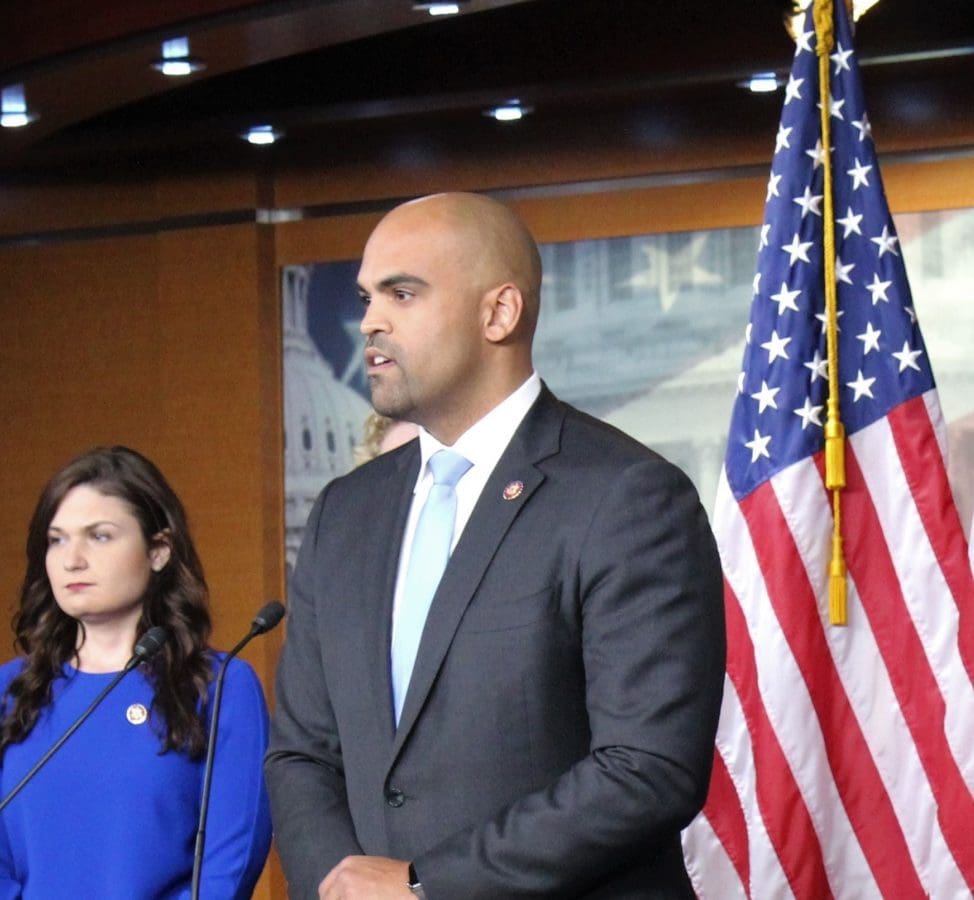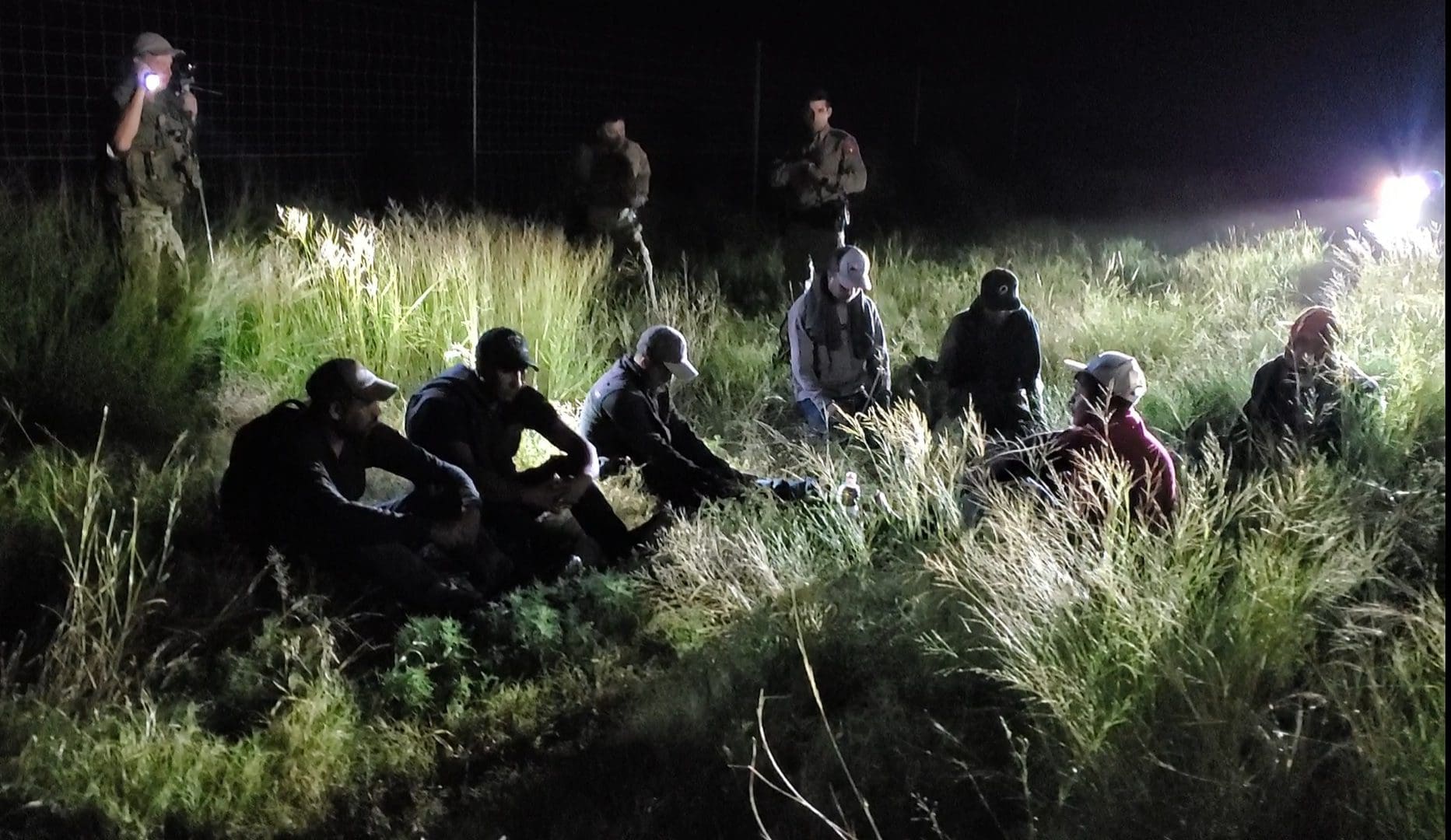A recent Texas Military Department (TMD) press release countering reported issues plaguing Operation Lone Star (OLS) is being disputed by retired service members, as well as a recording of a meeting obtained by Texas Scorecard where multiple concerns (such as pay and sexual assault) were discussed.
A retired member of the Texas National Guard (TNG) said TNG has had pay problems for a long time. He also said the TMD punishes whistleblowers, adding that an overhaul of the full-time staff is needed.
When discussing his book “The Savior Generals,” Victor Davis Hanson recalls that when Gen. Matthew Ridgway took command of retreating Allied forces in the Korean War, he prioritized the well-being of soldiers. Ridgway then led the Allies to save South Korea and obliterate the Communist Chinese Army.
Recently, the well-being of Texas soldiers has become a key concern as the TMD and Gov. Greg Abbott have come under increasing scrutiny for their mishandling of OLS.
Instead of being transparent and focusing all energies on solving problems, the TMD and Abbott’s office have let a number of media inquiries go unanswered, shielded public information from disclosure, and lashed out at fact-based reporting.
This pattern of behavior continued last Friday evening when the TMD posted a defense of OLS’ executional shortcomings. The TMD claimed its press release was “setting the record straight.” However, the recording of an internal town hall meeting of the 36th Infantry Division exposed the TMD’s defense as a string of easily refutable and, at times, self-contradictory claims.
Background
Abbott launched OLS, his border surge operation, shortly after the inauguration of the Biden-Harris Administration last year. This operation was triggered in response to Texans’ outrage over the lack of sound federal border security policies, while illegal border crossings spiked. But in recent weeks, Abbott’s own border security action has been labeled “political theater,” with troops reporting they “feel like mall cops.”
OLS’ effectiveness is also questioned after recent footage showed illegal border crossers—with the help of the federal government—continuing to make their way into America through Texas. “It’s absolutely getting worse,” Retired ICE Agent and Land Commissioner candidate Victor Avila told Texas Scorecard this week. “When I was there in Eagle Pass, 1,500 people came in … and they were gone in 24 hours … to the United States.”
Meanwhile, Abbott’s “theater” has come with a range of real issues plaguing Texas soldiers. In its Friday press release, the TMD itemized OLS’ issues into six categories, including: rapid deployment, pay, and equipment and living conditions.
Rapid Deployment
Launched in early March 2021, Abbott intended to quickly expand OLS from 1,000 troops on the border to 10,000, but not all at once. TMD management has tried to explain away OLS’ problems in part by attributing them to how quickly the operation was deployed. “Some have attempted to compare our current disaster response effort to enduring federal overseas missions, which allow more time for planning and preparation,” TMD’s press release states.
Retired Sgt. Maj. Jason Featherston, former Senior Enlisted Advisor to TMD, previously told Texas Scorecard that TMD has successfully pulled off massive staff increases before, mentioning 2017’s Hurricane Harvey relief mission. The Texas adjutant general then was Maj. Gen. John F. Nichols. Featherston noted the Harvey mission was not as lengthy as OLS.
Questions remain about how many TNG troops are actually at the border as part of OLS. TMD claimed in its press release to have deployed “more than 10,000,” but Featherston has disputed this. “There’s only 6,700 [TNG troops] on the border,” he told Texas Scorecard on January 10. “[TMD will] tell you that the remaining number is supporting the border mission, but not on the border, which [is] a half-truth there.”
Anytime you have to do a mission and it takes up a third of your manpower not to be there, something’s wrong.
Last November, Abbott himself admitted the 10,000-member force at the border isn’t composed entirely of the Texas National Guard (TNG) soldiers, but is mixed with members of the Texas Dept. of Public Safety.
Pay
As OLS approaches its one-year anniversary, issues continue with soldiers’ paychecks. Texas Scorecard was first told of these in October, as additional troops were being onboarded.
These pay issues were known by top officials in the state, including Comptroller Glenn Hegar and Abbott’s office. Texas Scorecard’s initial reporting on paycheck hardships in OLS is well documented and revealed how worried even Maj. Gen. Tracy Norris—the current Texas adjutant general—was about the problem.
As our earlier reporting revealed, expansion of the mission appeared to be prioritized ahead of ironing out pay issues and others that affect a soldier’s well-being.
TMD’s attempt last Friday to suggest comparisons are being made between OLS and “enduring federal overseas missions” appears to be a red herring, deflecting attention away from themselves.
Mike McDonald, who served in the TNG from 2013 to 2019, shared that TMD even had pay issues during his tenure. “I was asked to come in and help for a couple days, and I just never got paid,” he told Texas Scorecard. McDonald said a soldier he knew from a previous Texas border mission around 2016 had a problem as well. “He went in … and didn’t get paid by them either.” McDonald noted that in his experience, these issues aren’t isolated to TNG, but they’re common with every state’s National Guard. He added that he also experienced pay issues with the National Guard of Democrat-controlled Connecticut.
In Friday’s press release, the TMD said it has had pay issues before. “Following Hurricane Harvey, the agency conducted a thorough after-action review, which identified issues with the pay system the agency was using at that time,” reads the press release. “While there have been administrative pay challenges, currently every service member assigned to Operation Lone Star is being paid.”
In reality, these “challenges” are paycheck hardships Texas soldiers assigned to OLS continue to have. Ongoing pay issues were referenced in a recording of a January 14 internal town hall of the 36th Infantry Division, which we obtained.
“They got Tiger Team going down again tomorrow. They’re going to spend time until the pay problems are fixed,” Maj. Gen. Charles Aris said. “It doesn’t mean there’s not going to be new problems, and I think sometimes people don’t understand that just because you’re working doesn’t mean new ones don’t pop up.”
TMD management expectations that pay issues will continue were further emphasized with a slide explaining the method to report soldiers’ problems. A “pay” category exists on the form.

Another ongoing paycheck hardship includes soldiers not receiving pay stubs, making it difficult to verify that they are receiving accurate compensation. Aris discussed this in the January 14 town hall.
“There’s a pay stub program that’s coming out that General Ulis and those folks are working on,” he said. “Everybody should see a pay stub and have a pay stub.”
However, soldiers reported the pay stubs they do receive lack necessary information. “I have soldiers down on the border, and they are asking for an itemized pay stub,” said a first sergeant whose name was undecipherable in the recording. “They get a pay stub, but it doesn’t break down how much they get for BAS, BAH and per diem, hazard pay, all that kind of stuff.”
“We’re still giving out pay stubs that are not itemized in any way, except for like 98 cents an hour and then the taxes,” a captain told Aris. “There’s nothing else itemized on that, sir.”
First Sgt. Crowder of the Financial Management Unit later said that if soldiers want a detailed pay stub, they have to ask for it.
“For your itemized pay stubs, unfortunately, the system that we use, sir, … you have to go to another system to pull that,” Crowder said. “What we’re doing is we’re working with the comptroller and the OSA, and we’re getting those pulled monthly or twice a month, as the pays come out, and we’re sending those to the J1s. So, the J1s can pull them and send them as requested by the soldier.”
A TNG source described J1 as a military term for “the personnel section.”
In a Friday press release, the TMD gave no deadline for when paycheck hardships will be fully resolved.
Equipment and Living Conditions
“There have been inaccurate reports and social media posts attempting to malign and undermine Texas Military Department efforts to support our service members along the border,” TMD’s Friday press release claimed. “Since the start of Operation Lone Star, thousands of vehicles and heavy equipment, including those with advanced optics, as well weapons, ammunition, ballistic vests and plates, have deployed into the Texas-Mexico border region to support the men and women on the ground.”
During the January 14 meeting, Texas soldiers told Aris about their problems with equipment and readiness.
First Sergeant (Name undecipherable in recording): Is there a plan to get more equipment down there so that all of those personnel will be utilized?
Captain Styles: The question I had for you was in regards to priority for ACFT equipment, specifically down on the border for Operation Lone Star. And the question that we have, sir, is if the ACFT [is] going to be consolidated at base camp?
A sergeant major, whose name was undecipherable in the recording, responded to Styles. “We’re going to look along the border to see where along the border is going to be the best and optimum place to put it to get the most bang for the buck,” he said. “But we are going to ensure that there is ACFT equipment on the border for everyone to use, sir.”
A commander mentioned how TMD’s mishandling of OLS is affecting organization and preparedness elsewhere.
My fellow organic unit commanders back home are trying really hard to maintain DSCA packages, for the equipment and manpower has pretty much been stripped out and strewn across the border. My question, sir, and their question as they desperately try to maintain some sort of DSCA package, is how will DSCA missions be filled when your organic units are hollow shells and your units on the border are not organized for DSCA response?
DSCA is an acronym for Defense Support of Civil Authorities. The U.S. Dept. of Defense defines it as “support provided by U.S. Federal military forces … and National Guard forces (when the Secretary of Defense, in coordination with the Governors of the affected States, elects and requests to use those forces in Title 32, U.S.C., status) in response to requests for assistance from civil authorities for domestic emergencies, law enforcement support, and other domestic activities, or from qualifying entities for special event.”
Maj. Gen. Aris did not seem to take well to the DSCA question. “I wouldn’t use words like ‘strewn about’ and ‘hollow,’” he replied. “What we’re doing is we’re coming up with a separate DSCA plan of how we’re going to do it, and units that are ordinarily tasked for DSCA may not be. And then, if there’s a large scale event, we’ll pull off the border with the equipment and do it.”
“We’re working on the DSCA plan. In the meantime, we’re working on some winter weather packages,” Aris continued. “We just don’t have the final order yet. But like I say, it’ll come out in the March timeframe.”
In addition to pay, equipment, and readiness, the town hall recordings reveal problems with soldiers’ living conditions, which may have been understated so far.
A quartermaster brought up the lack of access for proper toiletry equipment. “There’s females that, when they’re on duty, they don’t have … an adequate way to utilize a latrine,” he told Aris. “During their shift, they’re forced to get in touch with somebody or call their sergeant of the guard to give them a ride to go to the latrine. I was wondering, obviously, if there’s a fix for that.”
In a presentation during the January 14 town hall, Sgt. Maj. Petty made it appear as though concerns about sexual assault, sexual harassment, or the possibility of either occurring during OLS, were high, along with other severe problems.

“The red square box in there, the large one, those are the corrosives that we are combating as leaders,” Petty said. “That sexual harassment, sexual assault—never, never, never acceptable in any of our formation. And if there’s any issues with any of those two and you hear about it, you get that into the process. We don’t just move soldiers, we don’t try to cover it up.”
Aris added, “We’re just not going to tolerate any sexual harassment or sexual assault.”
Later in the call, a quartermaster expressed concern for the safety of women in his area. “I also have a female, that’s one of two females in an all-combat arms area,” he said. “Historically speaking, those are the types of scenarios that lead to unwanted outcomes.”
Troublingly, the January 14 town hall also indicated physical harassment, referred to as “smoking soldiers,” has occurred during OLS mission. A source described “smoking soldiers” as a method of discipline through physical exertion.
“When we start talking about treating soldiers with dignity and respect, smoking soldiers went out 15 years ago,” Sgt. Maj. Petty said. “If you see soldiers getting smoked or you’re part of a unit that does that, you’ve got to shut that down, because that is not acceptable whatsoever.”
Summary
Criticism of the TMD and OLS has come from the entire spectrum of media outlets. From the start of Texas Scorecard’s investigation, there have been requests for comment and information left unanswered.
The TMD has also sought to withhold public records. This month, they appealed to Attorney General Ken Paxton our requests for communications with the Texas Comptroller and Gov. Abbott regarding TMD payroll. This contradicts TMD’s suggestion that they’re “setting the record straight” and have worked to ensure accurate reporting.
Abbott’s office has also appealed to Paxton our open records request for their communications about Texas soldiers’ paycheck hardships and deployment of TNG forces as part of OLS.
Were it not for anonymous soldiers whistleblowing, it’s questionable whether these issues would have been uncovered. McDonald told us that not only do soldiers within TMD who tell the truth face retaliation, but the TMD enjoys retaliating. “It’s a fun thing for them.”
“If you have any paperwork that needs to be done—for instance, you want to go to a school, or even if you have a school schedule—they’ll cancel it on you,” he said. “If you just took a PT test and you did well on it, they’ll lose the paperwork [and they’ll] say, ‘Do it again. You’ve got to do it right now.’ Even when you’re not prepared.”
Shockingly, McDonald said not paying soldiers is another form of retaliation. “They’ll forget to pay you, and make you go through the process of trying to get paid.”
”The problems are sloppy, lazy, negligent, corrupt people in the administrative responsibility area of taking care of pay issues,” McDonald told Texas Scorecard. “Overall, it’s gonna require a total overhaul of the AGR system, and that’s just not going to happen.” He defined AGR as Active Guard Reserve, who are full-time staff and responsible for administrative responsibilities, including pay. They are different from M-Day soldiers, “the once-a-month guys.”
If you are a serviceman experiencing issues and would like to tell your story, contact us at rmontoya@texasscorecard.com.




